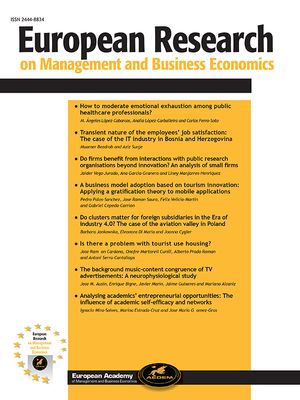En este trabajo analizamos el efecto de los valores culturales, las redes sociales y los programas de apoyo de organismos públicos en la puesta en marcha de proyectos empresariales. Los resultados muestran que los individuos con valores culturales de seguridad y universalismo –mixtostienden a finalizar con éxito la creación de su empresa. Por el contrario, determinados valores colectivistas, como la benevolencia, la conformidad o la tradición, inciden negativamente en el nacimiento de la empresa. También comprobamos que son las redes que aportan conocimientos directivos y los programas de ayuda pública no financiera provenientes de la Ventanilla Única Empresarial (en adelante VUE) los que más favorecen la creación de la empresa.
In this paper we analyze the effect of the cultural values, the social networks and the public programs of support of entrepreneurship. The results show that it individuals with cultural values of security and universalism -mixed-tend to successfully complete the creation of business. By contrast, we found that certain collectivist values such as benevolence, conformity or tradition, negatively affect the company's birth. We also demonstrate that networks that contribute directive knowledge and the programs of public help not financial coming from the Unique Managerial Window (from now on VUE) favour the creation of the enterprise.





